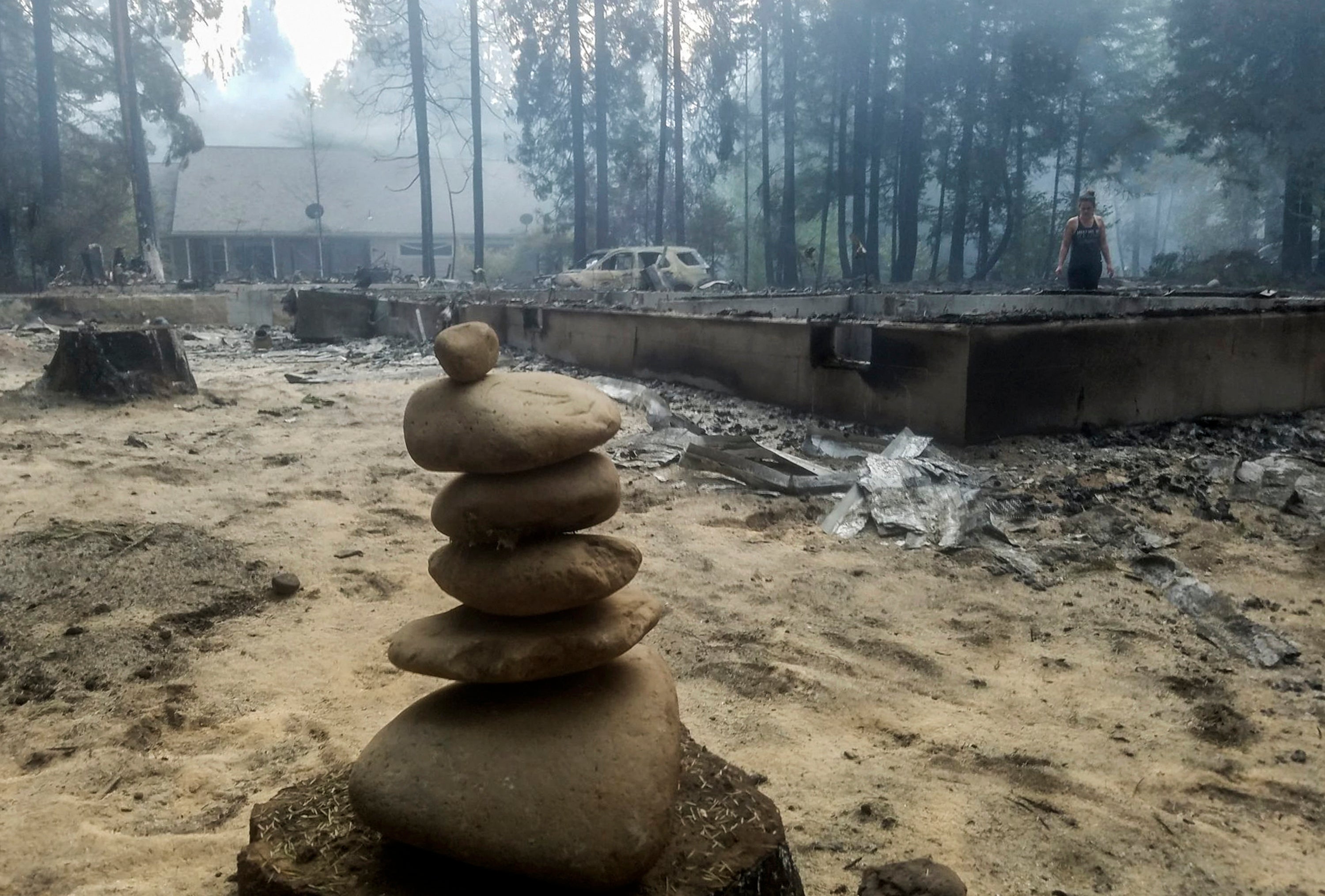
At least eight people have been killed and thousands forced to evacuate from wildfires that swept through dozens of communities on the US West Coast - with experts saying their intensity had been heightened by climate change.
From eastern Washington to the California coast, firefighters battled flames that ignited amid bone-dry conditions. There have been a number of reports of people starting fires intentionally
In the last two days, four people have lost their lives in California, three in Oregon, and a one-year-old boy in Washington state.
Thousands faced evacuation orders across the Pacific Northwest.
It was the state of Oregon that carried the lion’s share of the problems, as emergency crews worked to take on 100 major fires in the three states.
Blazes tore through at least five communities in Oregon's Cascade mountain range, as well as areas of coastal rainforest normally spared from wildfires. In eastern Washington state a fire destroyed most of the farming town of Malden, reports said.
“This is an unprecedented and heartbreaking event,” Washington governor Jay Inslee said earlier this week.
The governor, who had challenged for the Democratic presidential nomination on a platform to make tackling the climate crisis the nation’s priority, said events were forcing people to rethink many things.
“We’re living in a new world — this is not the old Washington,” he said.
“A fire that you might've seen that was going to be OK, over time is not OK any more because the conditions are so dry and are so hot because the climate has changed. This is a new world in forest and grassland fires that we have to be willing to recognise.”
In the Oregon community of Phoenix, 280 miles south of Portland, residents returned having evacuated to discover large numbers of their homes and belongings had been destroyed.
One resident, Jerry Walker, told the Associated Press he fled in his pajamas and only had time to grab some money. He did not know if his apartment complex survived.
“I’ve never seen devastation like this ever in my life,” he said. “I don't know how we're going on to recover.”
While wildfires are an annual occurrence in parts of the American West, experts say their intensity has grown because of climate change. This week, cities such as Seattle and Portland had to confront smoky air conditions as a result of fires in the hinterland.
Daniel Swain, a climate scientist at UCLA and the National Centre for Atmospheric Research, told CNN that California wildfires had grown in a scale of eight since the 1970s.
“Climate change has not just made the extreme heat waves that coincided with the fires worse. The bigger effect is the more subtle, long-term warming,“ he said. “That couple of degrees of average warming over decades....you don't notice it as much, but it's still there lurking in the background, sucking extra moisture out of the vegetation and the soil.”
Oregon Governor Kate Brown said up to 40,000 people had evacuated across the state where 900,000 acres had burned, dwarfing Oregon's average 500,000 acre full-year total.
“We have never seen this amount of uncontained fire across the state,” she said on Thursday. “We are feeling the acute impacts of climate change.”
Police in Douglas County and Medford counties cautioned against rumours that left-wing anti-fascists and right-wing Proud Boy arsonists were starting the fires.
Additional reporting by agencies







